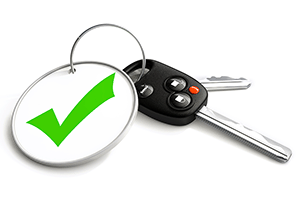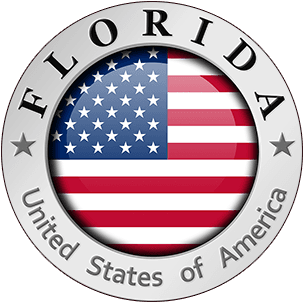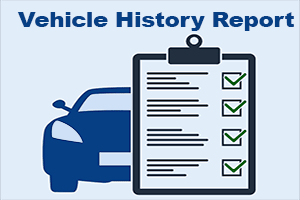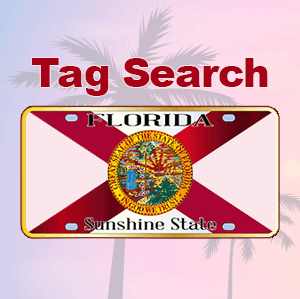
In the Sunshine State, a Florida license plate lookup can be a handy tool. It can reveal a wealth of information about a vehicle, it's history, and owner information. But what exactly is a FL license plate lookup? It's a search conducted using a vehicle's license plate number. This search can uncover details like the vehicle's make, model, year, accidents, vehicle history, and ownership information.
Why would someone need to perform a license plate check? There are many reasons. From verifying a vehicle's history before purchase, to checking for stolen vehicles, or even for personal safety reasons. However, it's important to note that there are privacy restrictions in place. Not all information is accessible to the public. We'll cover the world of Florida vehicle records in this guide. We'll explore its common uses, privacy restrictions, and how to conduct a search responsibly and legally.
Understanding a Florida License Plate Search
Performing a Florida license plate search is more common than you might think. This process involves using the vehicle's license plate number to obtain vehicle-related information. People use this service frequently to confirm a vehicle's history, which is very useful for making well-informed decisions when buying or selling a vehicle. Aside from these transactions, vehicle owner's also find value in these searches. This type of search is often used for verifying vehicle safety issues, finding out about recalls, and if there are any important safety alerts that need attention.
However, as a consumer, not all information is easily accessible on vehicles. Privacy laws protect sensitive details, like the owner's personal information such as addresses and phone numbers. Therefore, while you can find basic vehicle details, more sensitive data is tightly regulated. Understanding how to conduct a proper license plate look up starts with using reliable services. It's important to use approved services that that follow the letter of the law. These services can range from government resources, like the Florida Department of Highway Safety and Motor Vehicles (FLHSMV), to private companies offering detailed vehicle records.
How to Perform a Florida License Plate Lookup
Conducting a Florida license plate lookup involves a few straightforward steps. Online third party website tools make it accessible to everyone. While the Motor Vehicle Department offers access to vehicle records, they do not have online FL license plate lookup search tools. To initiate your search, choose a reputable vehicle record website, enter the complete license plate number and search. Some providers will also allow you to access the same vehicle data using the VIN number. Then once you've received your results, make sure the vehicle in question matches the results. This is
Quick Reference Guide to Florida Vehicle Searches:
1). Find a reputable lookup service.
2). Enter the Florida license plate number.
3). Select the type of report you need.
4). Complete any required payment.
5). Review the obtained information.
Several online services offer this lookup function. Some are free, while others charge a fee for detailed reports. When choosing a service, check their credibility. Read reviews and ensure they comply with privacy laws. Remember to respect privacy restrictions. Do not misuse the information you receive.
The Legal Framework: Privacy and Access
The legal framework governing Florida license plate checks is a requirement for running this type of search. Privacy laws, like the Driver's Privacy Protection Act (DPPA), restrict access to certain personal information. Under these laws, personal details of vehicle owners are safeguarded. This means that accessing such data without a legitimate reason can lead to legal consequences. Because of these privacy laws, only authorized personnel and entities can access sensitive information. This includes law enforcement, insurance companies, and certain individuals with verified uses.
Common Uses for Florida License Plate Lookups
Florida license plate lookups have various practical uses, that serve personal, legal, business, and governmental needs. This service is particularly popular for those researching vehicles, in order to be well informed about their purchase decisions. By verifying vehicle details, buyers can avoid fraud, unknown damages, and potential title branding issues. Businesses in the automotive sector also rely heavily on this service. Dealerships, for example, use it to confirm inventory accuracy and assess trade-in vehicles. Additionally, government agencies and law enforcement use license plate lookups during investigations. They can also assist in tracking stolen vehicles.
Common Uses For Florida Plate Searches:
1). Verifying vehicle history and ownership
2). Checking for stolen vehicles
3). Identifying vehicles involved in accidents
4). Uncovering unpaid parking tickets
5). Assisting in legal proceedings
6). Looking up recalls and safety issues
7). Verifying odometer accuracy
8). Finding out about vehicle title brands
9). Statistical analysis and research
10). If there are any liens on the vehicle
For Personal Safety and Legal Matters
Vehicle records are an invaluable resource for personal safety. They help individuals verify the legitimacy of vehicles they interact with and if there are any hidden issues that are not disclosed. For example, if you're buying a used car, a lookup can confirm its history and reveal any issues. This important step can verify you’re not purchasing a stolen vehicle or one with a bad history, or that has been in a severe accident. Furthermore, these records play a role in legal scenarios, such as aiding in resolving disputes involving hit-and-runs or uninsured motorists. This makes them a useful tool in legal investigations, law enforcement, and court cases.
In Business and Public Administration
In business, these record types are important and necessary for maintaining trust in transactions. Car dealerships use them to verify vehicle details before purchase or resale. Private investigators and insurance companies also benefit from this service. They use it to conduct fraud assessments and gather required information for claims.
Public administration agencies use vehicle data in urban planning and traffic management. For example, understanding vehicle distribution aids in infrastructure projects and community planning. Moreover, government entities employ this tool in environmental research. Tracking vehicle types can indicate trends in the increased volume of electric cars and other eco-friendly vehicles on the road.
Using FLHSMV for Vehicle Records
The Florida Department of Highway Safety and Motor Vehicles (FLHSMV) is a trusted resource. They provide access to authorized vehicle information and driver records. When you visit the FLHSMV website, you'll find various search options for different needs. Some resources require specific credentials or valid reasons, especially for certified copies of documents or replacement registrations and titles. This extra layer of verification makes sure that personal information stays safe, and is in compliance with state privacy laws. While the FLHSMV provides public access to general vehicle data. For deeper insights, third-party services may be necessary.
Privacy Restrictions and Ethical Considerations
Privacy remains a cornerstone of license plate lookups. Federal and state laws regulate access to personal vehicle information.
These restrictions protect vehicle owners. License plate lookups aim to balance privacy with public safety.
Respecting these laws is vital. Misuse of information can lead to serious legal consequences.
Understanding the DPPA and State Laws
The Driver’s Privacy Protection Act (DPPA) is key piece of legislation that safeguarding certain personal data. It limits access to sensitive vehicle owner information unless permitted for certain uses. State laws and the respective privacy protections also enhance the security of personal information. They make sure that only authorized individuals can obtain certain details. Always ensure compliance with legal guidelines. Respect privacy as you conduct any license plate lookups.
Can Anyone Perform a Florida License Plate Check?
Yes, anyone can run a FL license plate check online however there are restrictions to what information may be available. Many people run these types of searches to obtain vehicle owner information but there are some restriction on what information is available. It's always a good idea to check with state laws to see what's allowed.
What Information Can I Find With a Florida License Plate Search?
A FL license plate search will show the vehicle history, manufacturer options, NHTSA recalls, safety notifications, ownership information, and various other vehicle data points. These are often used as a means to verify certain pieces of information about the vehicle usually for people in the market to buy a used car, truck, SUV, or motorcycle.
Is There a Free Florida License Plate Lookup?
Yes, there are many free resources that will show basic information about a vehicle for free. But for detailed reports, such as vehicle history reports, owner information, or title checks, you will need to pay for that information. The services that are free will show mostly manufacturer data, vehicle options, make and model.

The state of Florida allows public access to vehicle records that can be accessed with either the license plate number or vehicle identification number. While most information is readily available, certain personal vehicle owner information is only accessible for permissible reasons via the DPPA and state laws.



Florida License Plate Owner Search

Florida Vehicle History Report

